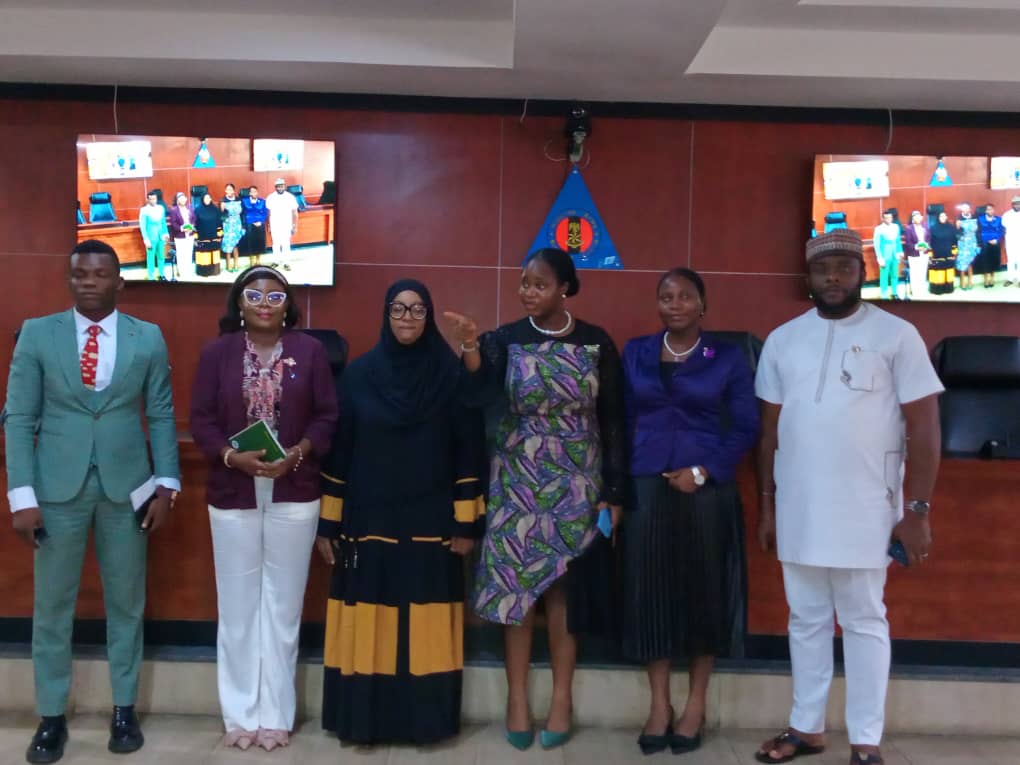The President of the Female Journalists Network Nigeria, Joy Rademene Asonye, has said the outcomes of CSW69 reaffirm that gender equality is not just a moral obligation but also an economic and social necessity.
She made this statement at the International Women’s Day (IWD) Workshop and Step-Down of CSW69 Resolutions held on Tuesday in Abuja.
Speaking on the theme “For All Women and Girls: Rights, Equality, Empowerment,” Asonye emphasized that when women have a seat at the table and are empowered economically and politically, entire nations benefit.
“Our discussions today have emphasized the urgent need for policies that protect and promote women’s rights, investment in women-led businesses, and increased collaboration between the media, civil society, and government to drive these objectives forward.
“Over the course of today’s discussions, we have not only examined the key resolutions from the 69th Session of the Commission on the Status of Women (CSW69), but we have also critically assessed how these resolutions can be translated into tangible actions for Nigeria.
“We have heard from brilliant minds, engaged in solution-driven conversations, and identified the necessary steps to advance women’s economic empowerment, increase women’s political participation, and create an enabling environment for sustainable development.”
She urged participants to renew their commitment to taking discussions beyond conference walls and into workplaces, communities, and policy frameworks.
“The time for action is now. Together, we rise, and together, we build a Nigeria where every woman and girl can thrive.”
The Chairman of the NUJ, FCT Council, Grace Ike, noted that this year’s theme reminds society of its collective responsibility to create a world where every woman and girl can succeed.
Ike, who was represented by Sharon Emefian, stated that women have always been at the forefront of progress, shaping societies, leading movements, and breaking barriers.
Yet, despite these contributions, gender inequality persists.
“Many women still face challenges such as unequal pay, limited access to education, and gender-based violence. These issues are not just women’s problems—they are global challenges that demand urgent action.
“Empowerment begins with ensuring equal rights. It means providing opportunities for women to lead in every sphere—whether in politics, business, or education. It means dismantling stereotypes and creating spaces where women feel safe, valued, and heard.”
She further urged stakeholders to reflect on the work ahead, pledge support for policies that promote equality, uplift women in their communities, and inspire the next generation of girls to dream without limits.
The President of the AAWDI Family Farmers for Food Sufficiency Initiative, Rekiya Ibrahim Amedu, commended the organizers for their tireless efforts in championing the cause of women and driving meaningful change.
“We honor and celebrate the incredible strength, resilience, and wisdom that women bring to every facet of life. Women are the heartbeat of families, communities, and societies. As nurturers, innovators, and leaders, their contributions shape the world and inspire progress.”
She stressed that women’s unwavering commitment to human capital development, community empowerment, and national progress is a testament to their boundless strength and resilience.
“By empowering individuals and nurturing talents, women are laying the foundation for a brighter future—not just for themselves but for the nation as a whole.
“In every initiative undertaken, women inspire hope, foster growth, and amplify the voices of those who need it most. Their dedication to advancing education, entrepreneurship, and leadership plays a pivotal role in driving sustainable development and fostering a thriving society.”















